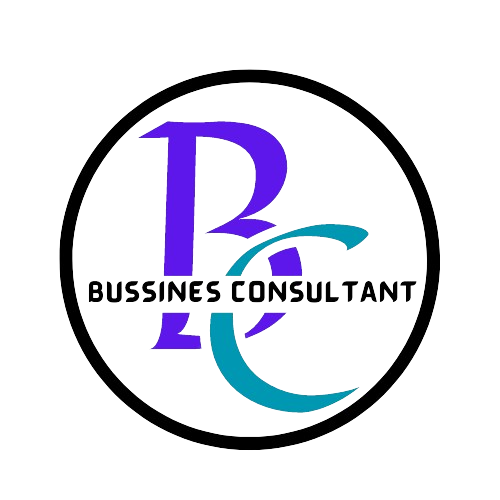Understanding Business Programmers!
Introduction to Business Programmers
Definition
Business programmers are the unsung heroes of the modern workplace, blending technical skills in programming with a keen understanding of business operations. They design, develop, and maintain software applications that enhance business functions. Whether it’s building an inventory management system or creating a customer relationship management (CRM) tool, their work is crucial in ensuring that technology effectively supports business goals.
Importance of Business Programmers in Today’s Economy
In today’s fast-paced economy, businesses have become increasingly reliant on technology to succeed. Business programmers play a pivotal role in this landscape. They help organizations streamline operations, improve efficiency, and drive growth by ensuring that software solutions are tailored to meet specific business needs. Their expertise not only aids in reducing costs but also enhances customer experiences by providing solutions that are both functional and user-friendly.
Overview of the Skills Required for Business Programmers
To excel in their roles, business programmers need a multifaceted skill set that includes:
- Proficiency in various programming languages
- Strong analytical and problem-solving abilities
- Understanding of business operations and needs
- Excellent communication skills for collaborating with cross-functional teams

Functions of Business Programmers
Development of Business Applications
One of the primary functions of business programmers is developing applications that help businesses operate more efficiently. They create custom software that meets the unique needs of different departments—be it marketing, finance, or supply chain. This customization ensures that the tools used are aligned with the specific workflows and objectives of the organization.
Optimization of Business Processes
Business programmers don’t just build applications; they also fine-tune existing processes. Through their understanding of technology and business operations, they identify bottlenecks and offer solutions that streamline workflows. For example, automating data entry or implementing project management tools can significantly reduce time spent on mundane tasks, allowing employees to focus on strategic initiatives.
Data Analysis and Reporting
Today, data is king, and business programmers are at the forefront of harnessing its power. They develop systems that collect, analyze, and interpret data to provide meaningful insights. By creating dashboards and reports, they help businesses make informed decisions based on real-world performance metrics, leading to smarter strategies and enhanced profitability.

Skills and Tools Used by Business Programmers
Programming Languages
A variety of programming languages are in the toolkit of a business programmer. Some common choices include:
- Python: For data analysis and application development
- JavaScript: For web-based applications
- SQL: For database management and data retrieval
Software Development Frameworks
Frameworks help streamline the development process, making it easier for business programmers to deliver high-quality applications efficiently. Familiar frameworks may include:
- Django for Python
- Angular or React for JavaScript-based applications
Tools for Collaboration and Project Management
Collaboration tools are essential for business programmers who often work with diverse teams. Tools like Trello, Slack, and Asana help manage projects, facilitate communication, and ensure everyone is on the same page, enhancing productivity and teamwork.
Career Path of Business Programmers
Educational Requirements and Certifications
Typically, business programmers hold degrees in computer science, information technology, or related fields. While a bachelor’s degree can open doors, certifications like Certified Business Analysis Professional (CBAP) or Agile Certified Practitioner (PMI-ACP) can add significant value to a resume.
Job Roles and Responsibilities
The responsibilities of business programmers can vary widely depending on the organization. However, they generally include:
- Building and maintaining business applications
- Collaborating with stakeholders to gather requirements
- Troubleshooting and resolving software issues
Professional Growth Opportunities
The career path for business programmers is promising, often leading to roles such as system analyst, IT manager, or business consultant. With experience, they can also transition into leadership positions that focus on both technology strategy and business outcomes.
Challenges Faced by Business Programmers
Balancing Technical and Business Acumen
One of the biggest challenges for business programmers is striking a balance between technical skills and understanding business needs. Sometimes, the technical solution may not align perfectly with what the business requires, and it’s crucial to find a middle ground.
Keeping Up with Rapid Technological Changes
The tech landscape evolves at dizzying speeds, and business programmers need to stay updated with the latest trends and tools. This can be both exciting and overwhelming, as continuous learning is essential to remain relevant in their roles.
Communication Barriers Between Business and IT Teams
Often, business and IT teams speak different languages—one more technical, the other more operational. Business programmers must bridge this communication gap, ensuring that both sides understand each other’s perspectives to achieve successful outcomes.
Conclusion
Business programmers are instrumental in aligning technology with business goals, making their role vital in today’s enterprises. As businesses continue to evolve and technology becomes ever more integral to operations, the demand for skilled business programmers will only grow.
Looking into the future, we can expect business programmers to play an even more significant role as industries adapt to new technologies, such as artificial intelligence and machine learning. Bridging the gap between technology and business needs will remain essential for driving innovation and success.
Most positions require a degree in computer science or a related field, along with certifications that demonstrate proficiency in relevant skills.
Familiarity with languages such as Python, JavaScript, and SQL is beneficial, alongside knowledge of frameworks that enhance development processes.
By developing tailored software solutions, optimizing processes, and providing data-driven insights, business programmers enable organizations to operate more efficiently and make informed strategic decisions.




